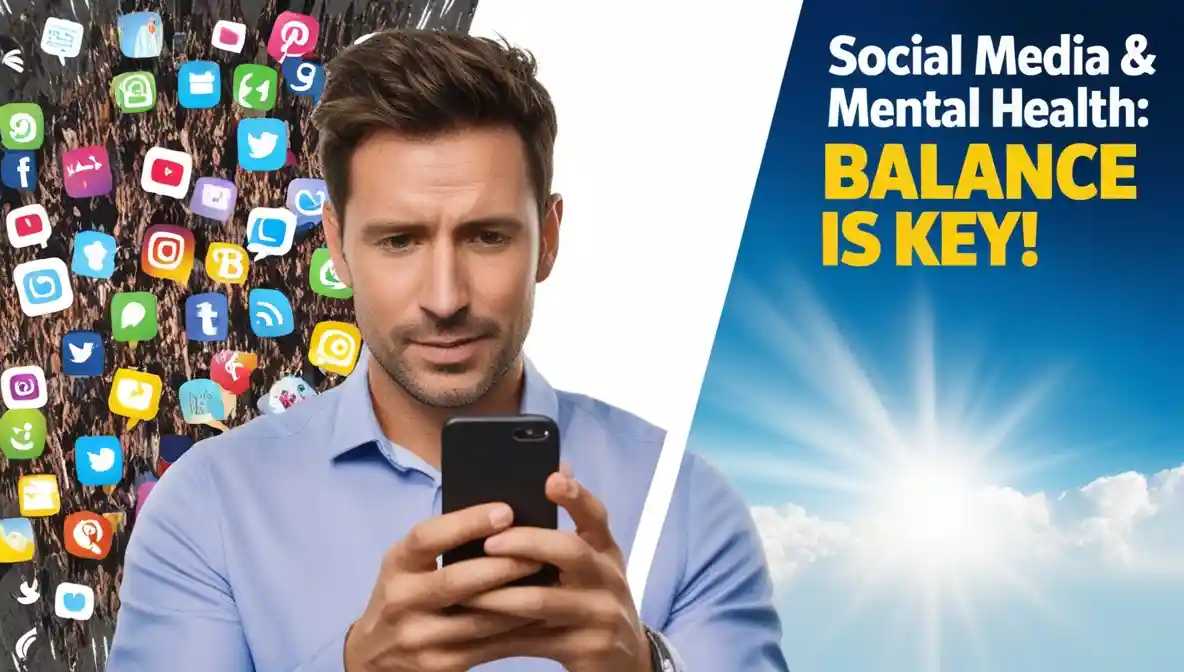Introduction
Social media has transformed how we connect, communicate, and consume information. While it offers unparalleled opportunities for engagement, it also comes with potential pitfalls, especially concerning mental health. How can we navigate social media in a way that enhances rather than harms our well-being?
In this post, we’ll examine the psychological effects of social media and share actionable strategies for achieving a healthy balance.
The Psychological Impact of Social Media
1. The Positive Side
- Connection and Support: Platforms like Instagram and TikTok foster communities where individuals can find support and like-minded people.
- Learning Opportunities: Access to mental health tips, self-help resources, and educational content is easier than ever.
- Creative Expression: Social media provides an outlet for self-expression, allowing users to share their passions and talents.
2. The Negative Side
- Comparison Trap: Constant exposure to curated highlights of others’ lives can lead to feelings of inadequacy, jealousy, and low self-esteem.
- Addiction and Overuse: Social media apps are designed to keep users engaged, often leading to excessive screen time that harms mental health.
- Cyberbullying and Harassment: The anonymity of the internet can encourage negative behavior, impacting users’ emotional well-being.
- Sleep Disruption: Late-night scrolling often interferes with sleep, which is crucial for mental health.
Also check: How the Brain Creates Dreams: The Science of REM Sleep
How to Strike a Healthy Balance
1. Set Boundaries
- Schedule Screen-Free Time: Designate specific hours of the day to unplug from social media, such as during meals or before bedtime.
- Use App Timers: Leverage built-in tools like app timers or screen time monitors to limit usage.
2. Curate Your Feed
- Follow Positive Content: Choose accounts that inspire, educate, or uplift rather than trigger negative emotions.
- Mute or Unfollow: Remove accounts that promote unrealistic standards or cause stress.
3. Practice Mindful Use
- Pause Before Posting: Reflect on why you’re posting and whether it aligns with your values.
- Avoid Multitasking: Focus on the moment rather than mindlessly scrolling during other activities.
4. Seek Offline Connections
- Prioritize face-to-face interactions to strengthen your social support system.
5. Take Digital Detoxes
- Regularly step away from social media to recharge and reconnect with the offline world
The Role of Social Media Platforms
Social media companies can play a role in promoting digital well-being by:
- Introducing features to monitor mental health impacts (e.g., Instagram’s “Take a Break” reminders).
- Reducing harmful content through better moderation and algorithms.
- Promoting transparency about how content is curated and its psychological effects.
FAQs About Social Media and Mental Health
1. How does social media affect mental health?
Social media can both positively and negatively impact mental health, depending on usage patterns and content consumed.
2. Can limiting screen time improve mental health?
Yes, reducing excessive screen time can lower stress levels, improve sleep, and foster better mental well-being.
3. Are some platforms worse than others for mental health?
The impact varies by individual, but platforms focused on image-sharing (e.g., Instagram) often have a greater influence on self-esteem due to comparison.
4. How can I make social media usage healthier?
Set boundaries, curate your feed, and use tools like app timers or digital detoxes to manage your time and focus on positive interactions.
5. Should I quit social media entirely?
Quitting isn’t always necessary. Instead, focus on mindful use and finding a balance that supports your well-being.
Conclusion
Social media is a powerful tool that can enrich or erode mental health depending on how it’s used. By setting boundaries, curating your feed, and practicing mindful engagement, you can create a healthier relationship with technology.
How do you manage your social media usage? Share your tips in the comments!









